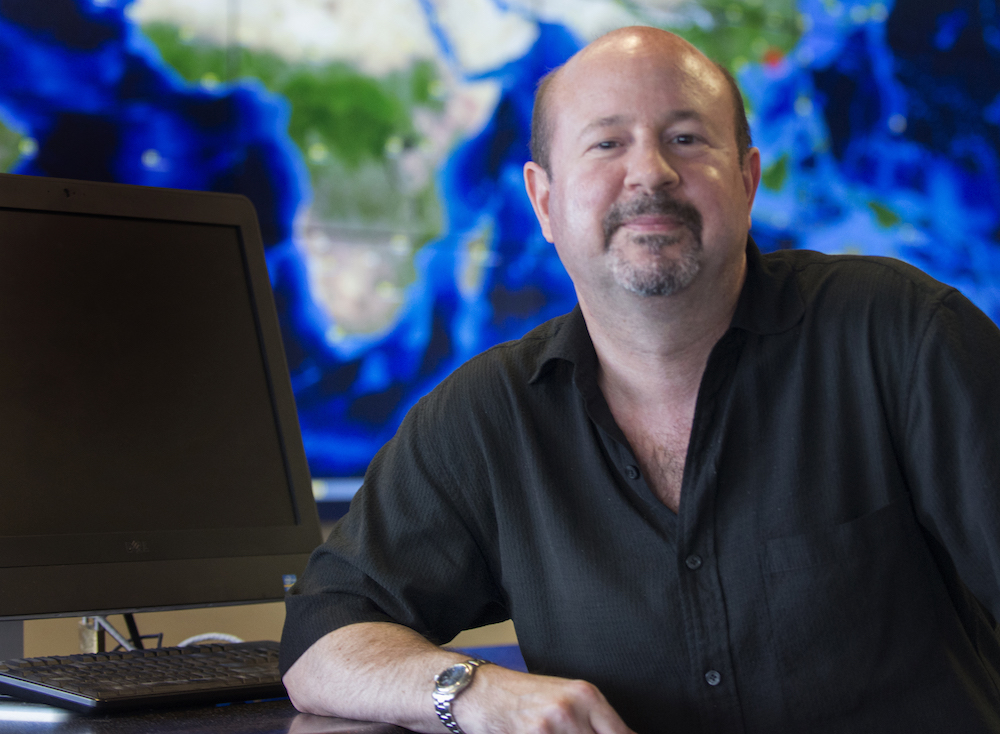Over the past three weeks, the climate denial playbook has been on display in the Washington, D.C. courtroom where an internationally-renowned climate scientist is suing two right-wing bloggers for defamation.
As the trial began entering its final stages last week, attorneys for Michael E. Mann continued to challenge witnesses who sought to cast doubt on his research showing that global temperatures rose sharply during the 20th century — a key finding in establishing the connection between the burning of fossil fuels and climate change.
Mann, currently the Distinguished Professor of Earth and Environmental Science at the University of Pennsylvania, sued right-wing commentators Rand Simberg and Mark Steyn for defamation in 2012, after Simberg made allegations of scientific fraud against Mann on the website of the Competitive Enterprise Institute, comparing him to convicted child molester Jerry Sandusky, Penn State’s former football coach. Mann was a Penn State professor at the time.
“Mann could be said to be the Jerry Sandusky of climate science,” Simberg wrote, “except for instead of molesting children, he has molested and tortured data.” Steyn cited these comments in the National Review shortly after.
Mann testified during the trial that the comparison, which is at the heart of his defamation suit, traumatized his family, and hurt his career and reputation.
But much of the defense’s strategy shied away from addressing that, in favor of convincing jurors in Washington, D.C. Superior Court that Simberg and Steyn’s statements alleging data manipulation were not defamatory. Using a common tactic of the climate countermovement, the defense appeared to focus on sowing mistrust in jurors’ minds about both Mann’s research methods and his scientific credibility.
A key part of this strategy was last week’s testimony of Abraham J. Wyner, a University of Pennsylvania statistician and co-author of a 2011 paper in the Annals of Applied Statistics that challenged Mann’s famous “hockey stick” graph showing a pronounced jump in global temperatures last century.
Cherry Picking?
Guided by Mark DeLaquil, one of Simberg’s attorneys, Wyner suggested that Mann and his hockey stick co-authors could have “cherry pick[ed]” data and used misleading statistical techniques to produce their desired outcome.
“My opinion is that methods were manipulated” to understate uncertainty in Mann’s results, Wyner said.
During Wyner’s testimony, DeLaquil invited the statistician to stand in front of poster boards with a marker in hand, as if he were teaching a class. Occasionally drawing smiles and laughs with self-deprecating jokes, Wyner described scientists’ process of selecting data and choosing which statistical techniques to employ as a “walk through a valley of forked paths,” suggesting to the jury that researchers could, if they chose, select a path that would yield the results they were seeking.
Asked by DeLaquil for examples of cases where researchers had used misleading methods to produce implausible outcomes, Wyner’s analogies included the “ability to read minds” and “predict the future.”
During the statistician’s testimony, DeLaquil presented the jury with slides with titles such as “Dr. Mann’s Data Manipulation” and “The Hockey Stick Is Misleading.”
Patrick Coyne, one of Mann’s attorneys, confronted these claims.
At the start of his cross-examination of Wyner, Coyne established that Wyner is “not a climate scientist,” has “no formal training in climate science,” and is “not an expert in paleoclimatology.”
Paleoclimatologists use so-called “proxies” — such as ice cores, tree rings, and corals — to study Earth’s climate from eras prior to the invention of meteorological instruments to gather data.
Coyne pointed out to the jury that Wyner’s 2011 paper, which formed the basis of his testimony, was the only climate science research the statistician has published in a peer-reviewed journal throughout his academic career.
This paper, which Wyner wrote with Blakeley B. McShane, was published alongside more than a dozen discussion papers, many challenging their approach and findings.
Among their arguments, Wyner and McShane stated that using tree rings, ice cores, and other sources of proxy data to estimate historical global temperatures created more statistical errors than simply generating random noise — thus suggesting that proxies were ineffective at estimating historical global temperatures.
However, “volumes of studies” have shown that such proxies contain strong climate signals, Jason E. Smerdon, a professor at the Columbia Climate School at Columbia University, told DeSmog. Wyner and McShane’s approach to evaluating the usefulness of proxy data is “both insufficient and ignores decades of work” in the field of paleoclimatology, Smerdon said.
Smerdon wrote one of the papers challenging part of Wyner and his co-author’s approach.
Inappropriate assumptions
Smerdon said that the methods Wyner and McShane relied on were not sufficient to actually test whether proxy data were an effective tool for inferring broader climate signals among historical temperature trends.
The assumptions they used “were likely not appropriate” for answering the question they said they were asking, Smerdon told DeSmog. “Not in a nefarious sense, but just from an academic perspective.”
During his testimony to the court, Wyner doubled-down on his claim that proxies are a “very poor predictor of global temperature.” But Smerdon noted that this is not the dominant view within the constantly advancing field of climate research.
“It doesn’t have to be, ‘Either Mike [Mann] was perfectly right 25 years ago, or the whole field is screwed up,’” Smerdon told DeSmog. “In fact, Mike gave an important first estimate in this space, and a lot of people have improved on it. And there were some things [that] were right and some that were wrong. And there were some methodological choices that he made that have been improved upon. But that’s the natural progression of science.”
Smerdon continued: “It’s very much a political and public discussion to make this be something where either the hockey stick was right and perfect, or the whole field needs to be thrown out.”
In their published response to the discussions of their work, Wyner and McShane noted that the debate had highlighted “numerous directions for future research.”
“We hope statisticians and climate scientists will heed the call on these problems,” they wrote.
Yet despite expressing hope that statisticians would get further engaged in climate science, Coyne pointed out in court, Wyner has not published any additional research on the topic.
Their response “was our final word,” Wyner responded.
The statistician acknowledged in court that he earned around $100,000 for serving as an expert witness in this case, making $750 an hour for his participation.
Subsequent defense witnesses included climatologist Judith A. Curry, a former professor at the Georgia Institute of Technology who filed an amicus brief in the case saying that Mann’s suit should be dismissed, and Steve McIntyre, a former mining executive who has sought to challenge Mann’s research for years.
Curry and McIntyre’s testimonies appeared to center on either undermining Mann’s personal integrity or raising doubts about his scientific integrity.
After lengthy and occasionally contentious closing arguments on Wednesday afternoon, the case now sits with the jury. In closing arguments, Mann’s attorney said that he was not looking for compensatory damages from Simberg and Steyn, only punitive damages — even if that amount is just a dollar.
Stay tuned for DeSmog’s ongoing coverage of the Michael Mann defamation case
Subscribe to our newsletter
Stay up to date with DeSmog news and alerts







